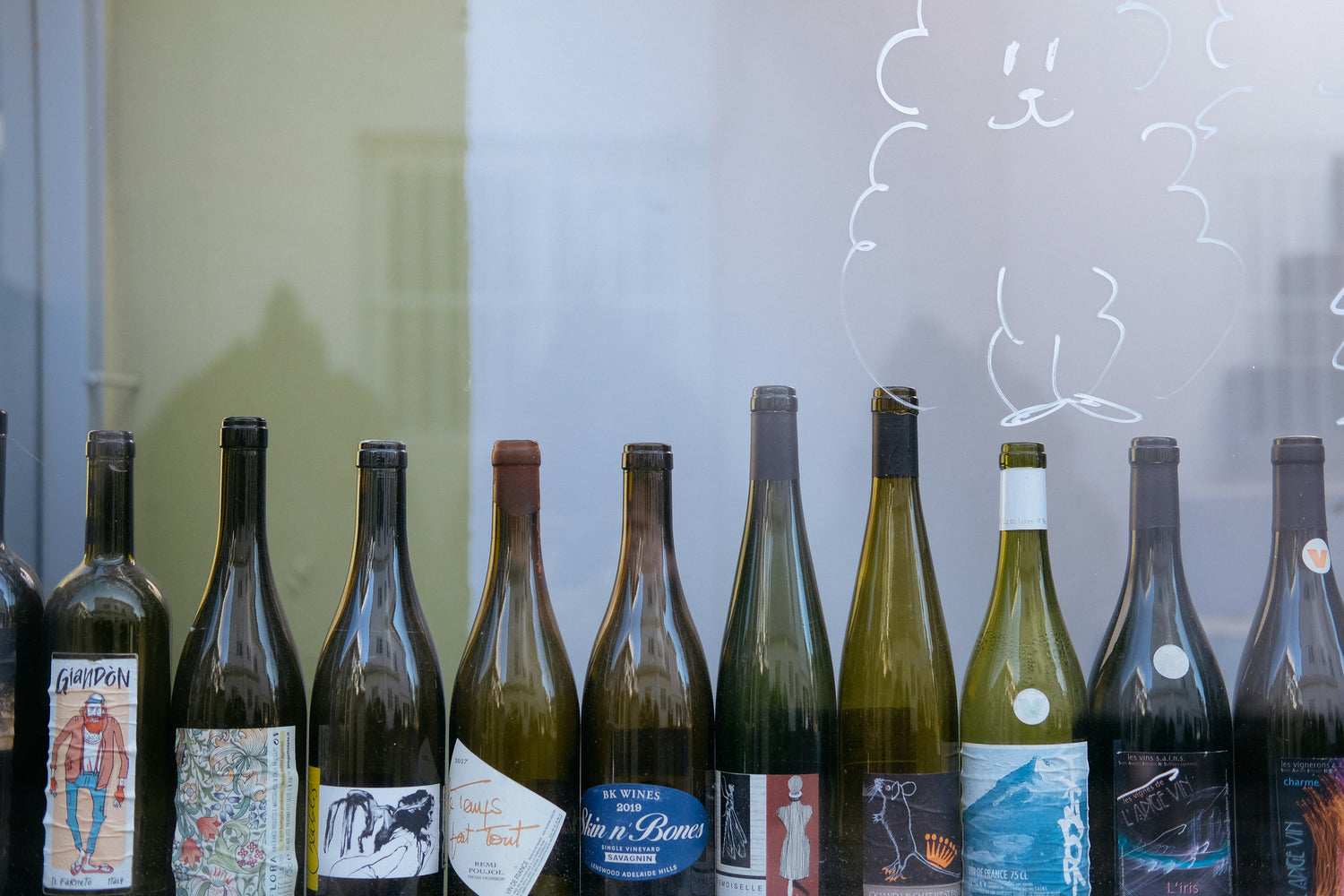
Why I Picked Moderate Natural Wine Drinking Instead of Dry January (An Unexpected Insight)
gregory Kinsman-ChauvetShare
As January rolls around, many embrace the "Dry January" challenge[1], pledging to abstain from alcohol for the month. However, this all-or-nothing approach often leads to unsustainable habits and overlooks the nuanced relationship we can have with natural wine[2]. This blog post explores a more balanced alternative: moderate natural wine consumption, which offers unexpected benefits and insights that extend far beyond a month of abstinence.

The Pitfalls of Dry January
Unrealistic Expectations and Rebound Effects
- Studies show that complete abstinence can lead to overindulgence later[3]
- Two-thirds of Dry January participants report drinking less after six months, but self-reporting is often inaccurate
- People tend to underreport alcohol consumption by 40-60%[4]
Overlooking Cultural Significance
- Natural wine plays a crucial role in cultural identity and terroir[5]
- UNESCO recognizes traditional winemaking as an intangible cultural heritage[6]
- Natural wine connects us to historical traditions and artisanal winemaking practices
The Case for Moderation in Natural Wine Consumption
Health Benefits Backed by Science
- Mediterranean diet studies show reduced heart disease risk with moderate natural wine consumption[7]
- Improved gut health was observed in moderate drinkers[8]
- Polyphenols in natural wine offer various health benefits[9].
-
- Enhanced insulin sensitivity
- Improved blood vessel function
- Reduced inflammation markers
Quality Over Quantity
- Natural wine contains up to 10 times more procyanidins or polyphenols than conventional white wine[9]
- Organic grapes and minimal intervention techniques enhance beneficial properties
- Focus on high-quality, sulfate-free wine for maximum benefits
Defining Moderation
- UK guidelines recommend up to 14 units per week for adults, spread over three or more days[10]
- One unit is approximately 76ml of 13% wine ABV (alcohol by volume
- Include several alcohol-free days each week to promote conscious consumption
Developing Mindful Drinking Habits
Cultivate Awareness
- Pay attention to thoughts, feelings, and surroundings while drinking natural wine.
- Notice sensations and effects of natural wine consumption
- Make choices aligned with personal values and consider natural wine perception
Choose Quality Natural Wines
- Opt for pure, unfiltered wine with no additives
- Support organic and biodynamic farming practices[11]
- Look for family-farmed, sustainably produced natural wines
Build Sustainable Habits
- Set specific drinking occasions (e.g., social gatherings, meals)
- Use proper measures to avoid overpouring and manage wine AB
- Alternate between alcoholic and non-alcoholic drink
- Eat before drinking to slow alcohol absorption
- Stay hydrated by drinking water alongside natural wine

Unexpected Benefits of Moderate Natural Wine Consumption
Enhanced Appreciation
- Focus on quality and terroir in natural wines
- Experience peak enjoyment in the first few sips of natural win
- Explore unique, artisanal wines without overindulgence
Improved Social Connections
- Lowered stress signals in the brain promote authentic interactions[12]
- Better memory of social events with moderate natural wine consumption
- Stronger bonds formed without relying on excessive alcohol
Health Improvements
- Increased gut bacteria diversity[8]
- Reduced inflammation
- Improved heart health
- Minimal sulfites and no toxic additives in pure natural wines
The Natural Wine Movement and Sustainable Viticulture
The natural wine movement has gained momentum recently, emphasizing environmentally friendly practices and low-intervention winemaking. Natural winemakers often employ sustainable viticulture techniques, such as dry farming and using wild native yeasts for natural fermentation. This approach produces unique and expressive wines and supports a more eco-conscious wine industry.
Characteristics of Natural Wine
- Lower alcohol content compared to conventional wines
- No added sugar or artificial additives
- Minimal intervention during the winemaking process
- Often unfiltered wine, preserving natural flavours and textures
Consumer Perception and Labeling
Consumer perception of natural wine has shifted as interest in natural products grows. Many wine enthusiasts appreciate these wines' handcrafted origin and pure expression of terroir. However, it's important to note that there is no official natural wine certification, and labelling information can vary. Consumers interested in natural wines should look for keywords like "unfined," "unfiltered," and "no added sulfites" on wine labels.
Conclusion
Embracing moderate natural wine consumption offers a more sustainable and enriching approach to wellness than total abstinence. By prioritizing high-quality, sulfite-free natural wines and developing mindful drinking habits, we can enjoy wine's cultural, social, and health benefits while maintaining a balanced lifestyle.
This approach aligns perfectly with the growing wellness movement[13], especially among younger consumers. By choosing family-farmed, organic, and lower alcohol content wines, we can savour the pleasures of natural wine while supporting sustainable practices in the wine industry and minimizing environmental impact.
Remember, success stems from conscious habits, not temporary abstinence. By fostering a thoughtful relationship with natural wine, we can enhance our appreciation, strengthen social bonds, and boost our health year-round. Moreover, we contribute to a more sustainable and diverse wine industry by supporting the natural wine movement and artisanal winemaking.
As you explore the world of natural wines, remember that moderation is key. While natural wines may have a lower likelihood of causing a severe wine hangover due to their minimal additives, it's still important to drink responsibly and listen to your body. By embracing conscious consumption and supporting natural winemakers, we can enjoy the many benefits of natural wine while promoting a more sustainable and mindful approach to alcohol consumption.
References
[1] https://alcoholchange.org.uk/get-involved/campaigns/dry-january [2] https://www.decanter.com/learn/what-is-natural-wine-45493/ [3] https://www.ncbi.nlm.nih.gov/pmc/articles/PMC6098603/ [4] https://www.ons.gov.uk/peoplepopulationandcommunity/healthandsocialcare/drugusealcoholandsmoking/methodologies/comparingmethodsofestimatingalcoholconsumption [5] https://www.wine-searcher.com/wine-101-terroir [6] https://ich.unesco.org/en/RL/traditional-georgian-winemaking-method-in-qvevri-00870 [7] https://www.ncbi.nlm.nih.gov/pmc/articles/PMC6723692/ [8] https://www.nature.com/articles/s41598-019-44618-0 [9] https://www.ncbi.nlm.nih.gov/pmc/articles/PMC6099584/ [10] https://www.drinkaware.co.uk/facts/alcoholic-drinks-and-units/latest-uk-alcohol-unit-guidance [11] https://www.winespectator.com/articles/organic-biodynamic-and-natural-wines-explained [12] https://www.scientificamerican.com/article/how-alcohol-makes-you-friendlier-for-a-while/ [13] https://www.globalwellnessinstitute.org/what-is-wellness/

